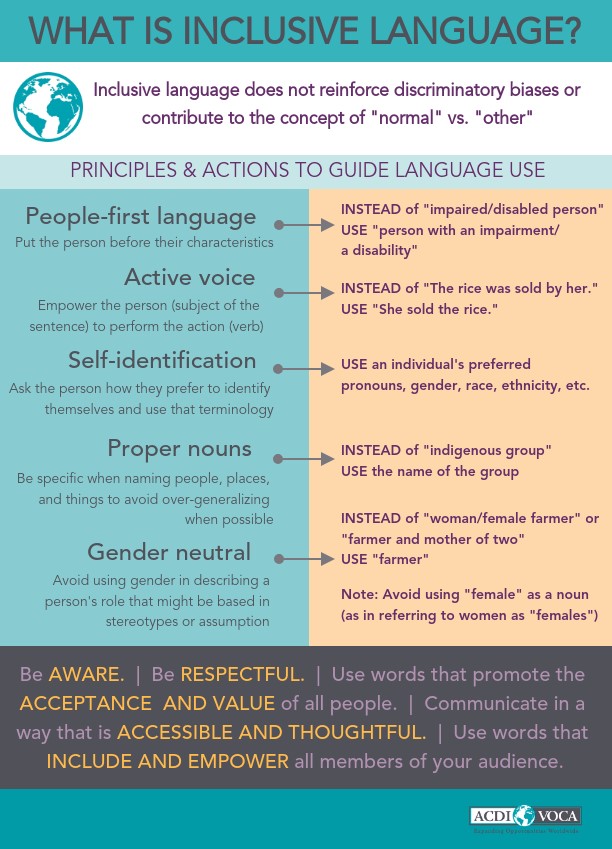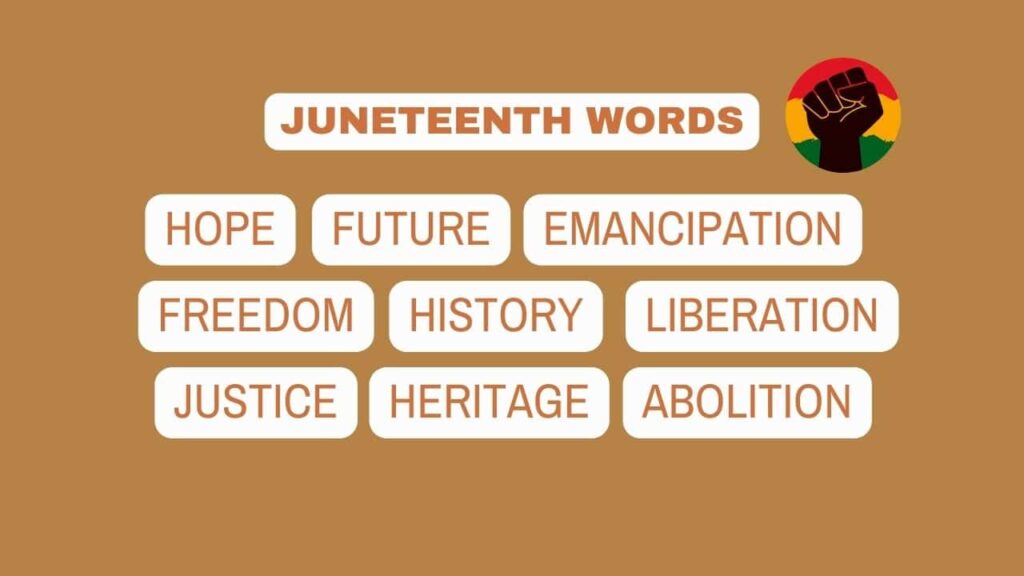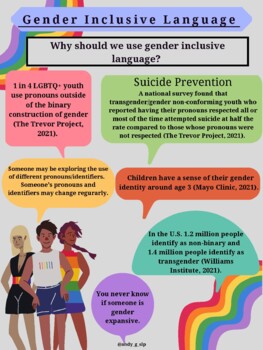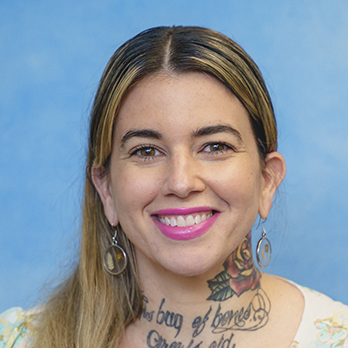Learning why words matter

Choose words to foster belonging, humanize others
Our words have an impact. How we address one another can either connect us or pull us apart. On Marie Beecham’s “Know Better Do Better” podcast, she states it’s easy to feel overwhelmed by the “perfect” words to use. She invites us to examine the hidden meaning of the language we often use and evaluate the message we are trying to get across. Are there other words or terms you could be using to get your intended message across in a more empathetic way? Take some time to reflect on how to align the words you speak with your values.
A call for humanizing others
Person-first language is something we should always strive to use. An individual is not solely their illness, age, race, disability, etc. Everyone is multifaceted and complex, and the language we use to describe them should be, too. Here are some tips about using inclusive language and why it matters:

Our identity, who we are
Our identity is central to our being. Everyone has the right to be called whatever makes them feel most comfortable. Remember, however, that not everyone may want to share who they are. Respect an individual’s privacy, and let them disclose parts of themself when they feel ready. Creating safe and intentional spaces can allow individuals to show up authentically.
As I was running a mindfulness group a few months ago, I asked one of the women her name. She told me to just call her by her nickname, as it was easier. I then asked, but what do you like to be called? What makes you feel most comfortable? Her eyes lit up. It seemed as though this was the first time anyone asked her this question. She then explained she gets frustrated when people say her name wrong, which happens frequently, so she decided to go by her nickname instead. It was something she had done to make it easier for others, but less safe for her. I can think of many times when I have done this, and maybe you can, too.
Our name holds who we are. What a world of difference it could make if we are intentional and ask with curiosity: What do you prefer to be called? How can you feel safe and respected?
Something to reflect on: When is it appropriate to name a person’s race or physical or mental attributes? We recommend being thoughtful. In a chart note, for example, one provider suggested including race and other such personal attributes in the social history but not in an introductory statement about a patient where such attributes can trigger bias. Read more at
https://www.ohsu.edu/inclusive-language-guide.
It is also important to note that not every culture, background, or specific group may identify the same way. This could be due to an individual’s lived experience, upbringing, social and environmental factors, and other elements. Let’s strive to avoid labels or stereotypes, as these can cause bias.
Juneteenth and Pride
During the month of June, we celebrate and honor Juneteenth and Pride.
Juneteenth commemorates the date, June 19, 1865, when the last Confederate community of enslaved Americans in Galveston, Texas, finally received word they had been freed – nearly two and a half years after President Abraham Lincoln issued the Emancipation Proclamation that declared a formal end to slavery in the United States. It is a day to reflect upon the history and progress toward racial equality while recognizing the ongoing work that still needs to be done to combat systemic racism.

Pride Month is a celebration of the LGBTQIA+ community, its achievements, and the pursuit of equality, tolerance, and acceptance. It’s a month to reflect on human rights movements and legal and social progress while fostering an inclusive environment for all individuals regardless of their sexual orientation or gender identity.

Join us in volunteering for upcoming local community events, Juneteeth and Pridefest. For more information, please visit our events and volunteering portal.
For a detailed inclusive language guide, please visit: https://www.ohsu.edu/inclusive-language-guide.
Belonging is the last word in the JEDIB acronym. It is a fundamental human need and how we see ourselves within the world. Take some time to think about how you can create belonging for yourself and others. By creating a space where everyone can belong, individuals can bloom and grow.
Thank you,

Allison LaRussa, B.A, CPS, RYT (she/her)
AVP, Health Humanities, Trauma-Informed Sanctuary Frameworks, and Justice, Equity, Diversity, Inclusion, and Belonging
The Wright Centers for Community Health and Graduate Medical Education








